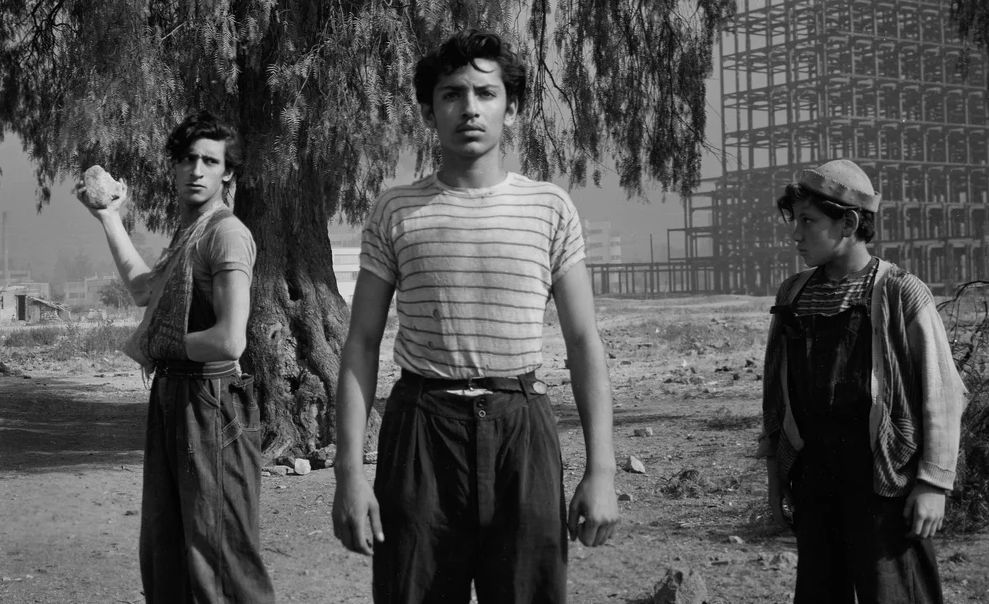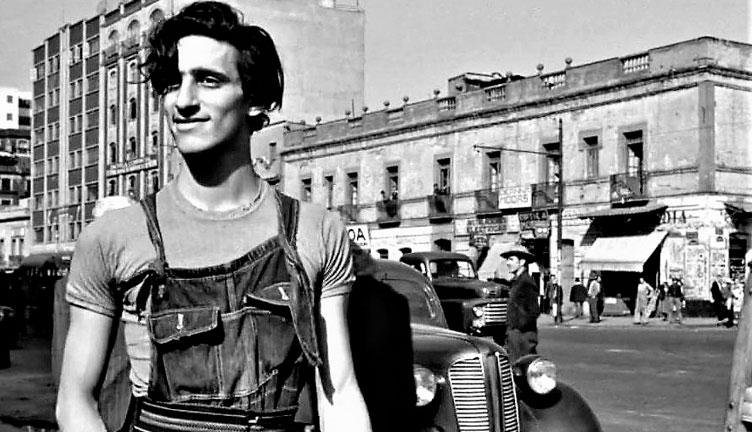The best mexican film: Los Olvidados
Read before watching the movie. No spoilers
Film Los Olvidados (The Young and the Damned). 1950 by Luis Buñuel
In the lists of the best Mexican movies will always be between the first and second place the movie Los Olvidados (The Young and the Damned), fortunately it is available for free on Youtube, it has English subtitles, so you can enjoy it whenever you want, but, why film critics consider it the best Mexican movie ever made?
Dear readers I have given myself the task of making a small synthesis of the historical context in which this film is released in theaters in Mexico City, so I'm sure you can enjoy it much better and understand why it is one of the best.
Luis Buñuel director of the film Los Olvidados in 1953 was invited to give a lecture at the UNAM (National Autonomous University of Mexico), the students after seeing and appreciating the film felt obliged to ask him, what was the cinema for the master Luis Buñuel, the answer was blunt: "the stories that are in the cinema are limited to imitate the novel or the theater ... repeated ad infinitum the same stories". This gives us the idea that Buñuel was looking for a way out of the industry standard, he wanted to tell a story that would make the public uncomfortable and not so much to please them with traditional stories.
Luis Buñuel. Spanish film director nationalized Mexican. 22 de febrero de 1900, Calanda, España -29 de julio de 1983, Ciudad de México
Only three years before this conference, Los Olvidados, was released in theaters in Mexico, a film that was not well received by Mexican audiences, but praised by international audiences.
Luis Buñuel exiled from Spain for being a critic of the regime of Francisco Franco and also of the Nazis, came to try his luck in the United States, first California and then New York, he lived with his wife and two children in very difficult economic conditions, after a misunderstanding he was persona non grata in this country and luckily he arrived in Mexico which opened the doors to express himself, to be free to make films, he made 2 films on demand, the first Gran Casino, typical Mexican film and the second a comedy called El Gran Calavera, which was a great success. With this the producer Oscar Dancigers after talking with Buñuel decided to film something much more personal, something that would break with the typical symbolism of Mexican films so far, remembering that by the 50's Mexico was living an economic boom, in popular history it is called the “Mexican miracle”, the president was Miguel Alemán, he was in office with the main idea of modernity and it was crucial to send the message to the world, using cinema to do so, it was also this president who proposed Mexico City as the venue for the Olympic Games, large housing constructions were made, the National University was inaugurated and private investment was growing.
Buñuel worked with the writer and film director Luis Alcoriza, a fellow Spanish exile, together they walked in the city, but not the modern and prosperous city, they went to the peripheries, they reached the slums, they met and talked with the people who lived in these places, they realized how they lived, what their family conditions were, how they had come to the city, as many had migrated from the countryside to the city.
For the spectators in the city it was not strange to see the economic conditions of those people, there were already films showing a face of poverty, but a "romanticized" face of it, making them even more invisible, as if their situation was something they were paying for and the government, of course, was not responsible for their situation, with films such as Nosotros los pobres, Allá en el rancho grande, etc.
Taking this into account Buñuel with the film Los Olvidados went against all political propaganda, against the same modernizing ideal of the government, he made visible the terrible deficiencies of the majority of the people who did not belong to the modernizing project of Mexico.
Buñuel was very meticulous and went to the archives of the Juvenile Court and the Department of Social Prevention, he took into account the news of the newspaper and it is precisely because of this information that the film tries to help a street child named Pedro, who would end up being the one who triggers the end.
The film Los Olvidados is a social, cultural and institutional critique, it portrays in a crude and faithful way the life of children in conditions of poverty, for this reason it is classified as a Italian Neorealist cinema.
It made middle and upper class viewers, who were part of the political project, uncomfortable, so much that the government of Miguel Alemán withdrew the film from theaters two weeks after its release, arguing that the film was an insult to Mexican society and that it did not represent "our people".
This was the reaction Buñuel wanted, a society that would question the status quo, of course first this society would deny it.
He portrayed the lack of work, insecurity, fear, social injustice, etc., things that affect the viewer.
Los Olvidados
The newspaper Claridades would publish his critique in September 1950.
"A refined lesson of cruelties, turns Luis Buñuel's last film into a monstrous one: Morbidity, childish crimes, sexual perversion, insest, hunger of cruel children and an effeminate adult, are the sewers that the Spanish filmmaker presents under the title of Los Olvidados."
Los Olvidados
Buñuel makes a timeless film, this is the reality in the present, not only of Mexico City, but also of New York, Paris, Rome, Tokyo, with situations that happen in the big cities of the world.
Although it is true that it reflects Mexico City, in fact it is the protagonist when in the foreground are the children, in the background are the houses in pieces and in the background is the modern city.
This story is also about the relationships between the characters, it is not a classic story of good versus evil, when watching this film you have to analyze the characters, their evolution and their context.
There is no victim, the situation itself makes everyone a victim, even the characters that would seem "innocent" to us, like the blind man or the peasant boy, everyone adapts to the circumstances, there is a social order that rules in the film and in these neighborhoods.
Los Olvidados
A few years later in 1951 Luis Buñuel would be consecrated in the history of cinema after winning the Golden Palm at the Cannes Film Festival, for Best Director, despite the lack of popular acceptance among Mexican viewers, it was recognized by many critics as a great film, winning 11 Ariel awards, a total triumph.
In 2003, the film Los Olvidados was declared Memory of the World and Cultural Heritage of Humanity by UNESCO, making it the only Mexican film to receive this recognition.











